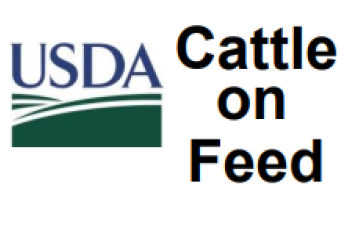First Thing Today | March 4, 2022

Wheat limit up again... Winter wheat futures locked up their 75-cent daily trading limit overnight, while spring wheat rose its 60-cent limit. That was the fourth day in a row for limit-up trade in the most actively traded winter wheat contracts and the second day for spring wheat. As of 6:30 a.m. CT, corn is trading 19 to 22 cents higher, while soybeans are mostly 2 to 4 cents higher. Soyoil is under heavy pressure after a sharp corrective decline in palm oil overnight. Front-month U.S. crude oil futures are more than $2 higher, though well below Thursday’s nearly 14-year high of $116.57. The U.S. dollar index is nearly 600 points higher this morning, reaching the highest level since May 2020.
Russia/Ukraine update... Officials say the Zaporizhzhia power plant, Europe’s largest, in southeastern Ukraine, is operating normally after it was captured by Russian forces in fighting overnight. But Ukraine’s foreign ministry said any damage to a storage facility for spent nuclear fuel could release nuclear radiation and called on global leaders to take decisive action. On the ground, Russian troops are encircling Ukraine’s capital Kyiv, while assaults on the southern city of Mariupol continued.
Black Sea supply chain mostly shut off... Many Black Sea ports are shut, while some container lines have halted Russian visits. The impact will cascade through supply chains. The commodity supply chain issues from Russia’s invasion of Ukraine will persist as long as shipping is disrupted, say observers.
Russia’s connections to global trade routes are disappearing... Shipping companies are halting services and a tit-for-tat battle over sanctions is paring back transportation operations, the Wall Street Journal (WSJ) reports. Several of the world’s largest freight forwarders suspended service in and out of Russia this week, and some extended their new bars to Moscow ally Belarus as Russia pressed its attacks on Ukraine. Digital cargo marketplace Freightos says the disruptions in ocean and air freight services, along with rising oil prices, threaten to pump up shipping costs still further around the world. The showdown over sanctions is buffeting the aviation industry, WSJ reports, slashing airfreight capacity and raising costs as airlines take longer routes to avoid Russian airspace. Rerouting around Russia is costly, adding about 700 nautical miles and two hours’ time for a flight from Frankfurt to Beijing, limiting room for freight. Freightos notes the European bar against Russian airlines removes Russian freighter operator AirBridgeCargo from the European market.
U.S. will act if Beijing aids Russia in evading sanctions... If China tries to help Russia evade sanctions in the wake of Moscow’s invasion of Ukraine, it will face countermeasures, a senior U.S. State Department official said on Thursday, without providing details. State Department counsellor Derek Chollet said the allied nations that have joined in sanctioning Russia represent a combined 50% of the global economy; China accounts for around 15%. “China, if it were to seek to evade the sanctions, or somehow dividing the sanctions, they would be vulnerable,” he said. “Any country that tries to evade these sanctions will also face the consequences of its actions. I don’t want to speculate with that would be.”
Bill introduced to block energy imports from Russia; White House is resisting... Senate Energy and Natural Resources Committee Chair Joe Manchin (D-W.Va.) and fellow panel member Lisa Murkowski (R-Alaska) introduced the Ban Russian Energy Imports Act Thursday, which would block imports of Russian crude oil, petroleum, petroleum products, liquefied natural gas (LNG) and coal. The bill has 16 cosponsors, and Reps. Brian Fitzpatrick (R-Pa.) and Josh Gottheimer (D-N.J.) will introduce a companion bill in the House. The bill would declare a national emergency related to threats from Russia’s invasion of Ukraine and direct the president to ban the imports using existing authority. Either Congress or the president could later terminate the emergency, lifting the import ban. The bill would exempt any product already in transit at time of enactment from the block. Given the sentiment in Congress, the measure could draw considerable bipartisan support.
White House studying whether RFS waiver would tame food inflation... The Biden administration is looking at whether waiving biofuels blending requirements under the Renewable Fuel Standard (RFS) could help fend off food inflation, according to Reuters, who cited two sources familiar with the situation. An administration official told Reuters “there is no serious consideration of this” right now, but given surging food inflation, it was just a matter of time until the food vs. fuel debate was rekindled. It is not clear any such waiver would impact food prices as it would most likely provide only a psychological impact for prices. And waiving biofuel requirements, if it were to happen, would only be a one-year situation. The Biden administration has yet to finalize RFS levels for 2021 and 2022, proposing to move the corn ethanol requirement back to 15 billion bu. as specified by law. Any waiver would also likely bring sharp pushback from farm-state lawmakers. Remember EPA was already asking about food vs. fuel relative to renewable diesel.
Why inflation can really hurt... Inflation becomes a problem when prices continue to rise while wages stagnate. The New York Times notes that’s what happened in the 1970s and is threatening to happen again. Inflation has been stoked by supply-chain problems during the pandemic, and “now Russia’s invasion of Ukraine may prolong supply-chain issues and push up energy costs. This persistent inflation could start to hit economic growth, an important factor underlying pay packages and investment gains.” But Nobel-winning economist Joseph Stiglitz said “we are not facing an inflation crisis.” At a panel discussion hosted by the Center for Economic and Policy Research, a liberal-leaning think tank, he argued that the economy is “not likely to have the type of wage-price inflation that we had in the 1970s.” President Joe Biden said this week that fighting inflation was his “top priority,” and Fed Chair Jerome Powell said he was prepared to raise interest rates for the first time in years later this month.
Nutrien wants potential rail strike averted... Nutrien, the world’s biggest crop-nutrient producer, is asking the Canadian government to intervene and halt a potential strike at one of the nation’s largest railways, because the disruption could potentially lead to smaller harvests. About 3,000 workers at Canadian Pacific Railway Ltd. voted in favor of going on strike March 16 if a collective bargaining agreement isn’t reached, according to their union. That would impact Nutrien’s ability to move potash, nitrogen and other crop chemicals to retail locations across Canada just ahead of spring planting, it said.
February employment data out later this morning... Economists expect non-farm payrolls in February to have increased slightly less than the originally reported figure of 467,000 jobs added in January. The unemployment rate is expected to edge down to 3.9% from 4% in last month’s report.
Cattle selloff extends... Live and feeder cattle futures faced heavy pressure on Thursday amid a technical breakdown that accelerated fund liquidation of long positions. While futures are short-term oversold, that’s not enough to curb the selling. With trader attitudes eroding amid concerns about geopolitical impacts to beef demand, the path of least resistance remains down.
Hogs pause... Hog futures rebounded from their initial negative reaction to the geopolitical uncertainties but have paused the past two days as the CME lean hog index firmed. The cash hog index is down 14 cents today, but seller interest in futures should be limited unless traders sense a stronger late-winter pullback is coming.
Overnight demand news... Iraq tendered to buy 2 MMT of milling wheat.
Today’s reports
- 2:00 p.m. Dairy Products — NASS
- 2:00 p.m. Peanut Prices — NASS
- 2:30 p.m. Commitments of Traders — CFTC






